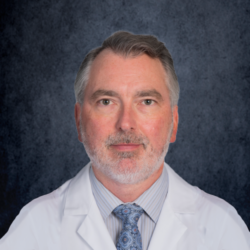
Neurosurgery Clinic
Through our partnership with Goodman Campbell Brain and Spine, Decatur County Memorial Hospital offers access to expert neurosurgical care consultations, ensuring our community receives high-quality care close to home. The Goodman Campbell specialists focus on diagnosing and treating conditions related to the brain, spine, and nervous system to ensure the best outcomes for our patients, close by.
What Conditions Should Prompt You to See a Neurosurgeon?
Goodman Campbell Brain and Spine helps patients overcome what they’re facing – from complicated neurological issues like brain tumors to simpler problems like chronic back pain. A referral from your provider may be required. If you are experiencing any of the below, it may be time to ask your primary care provider about a referral to a neurosurgeon. They treat a wide range of conditions, including:
- Back and neck pain – especially if it is severe or has changed in pattern
- Degenerative spinal disease – the result of the continual aging process all cells in the body go through. Over time, cells deteriorate, although the extent is not predictable or at a set pace
- Complex spine disorders – advanced conditions affecting the spine, such as severe scoliosis, spinal deformities, or multi-level disc degeneration, which often result in chronic pain, mobility issues, or nerve compression
- Spinal tumors – may include persistent back pain, weakness, numbness in the extremities, neurological deficits, or mobility issues
- Traumatic brain and spine injuries – a severe injury that requires urgent attention, often causing pain, immobility, or nerve damage
- Brain tumors – such as persistent headaches, seizures, or changes in vision or balance
- Brain aneurysms – occur when a blood vessel in the brain weakens and bulges, which can lead to severe headaches, vision changes, or, if it ruptures, a life-threatening hemorrhage requiring immediate medical attention
Call 812-222-DOCS to schedule an appointment with your primary care provider.
What is the Difference Between a Neurologist and a Neurosurgeon?
Both specialties diagnose and treat conditions of the nervous system, often collaborating to determine if surgical intervention is the most appropriate treatment option.
- Neurologists may treat conditions such as epilepsy, migraines, multiple sclerosis (MS), Parkinson’s disease, and seizures.
- Neurosurgeons may discuss surgical options with you.
While both neurologists and neurosurgeons focus on the same organ, neurologists typically use non-operative methods, including medications, whereas neurosurgeons manage medical conditions and perform surgery when necessary.
From the Simple to the Complex
The Goodman Campbell Brain and Spine specialists at DCMH can handle the neurosurgical care you need – from the routine to the extraordinary. They collaborate with other specialists on the DCMH campus to provide you with non-surgical options. If surgery is an option for you, they will work with you to schedule surgery at a partner hospital or surgery center.
With more top doctors than any neurosurgical practice in Indiana,* they’re the experts other experts turn to.
Referral Instructions:
Referral Instructions:
Most providers refer patients after an initial workup that often includes a physical exam, lab work, and imaging, but this is not always required. The information from the patient’s workup is sent to our office and reviewed by a physician or advanced practice provider prior to the patient’s appointment.
To refer a patient, download and fax this referral and office note to 317-396-1443. Call 317-396-1406 with any questions.





